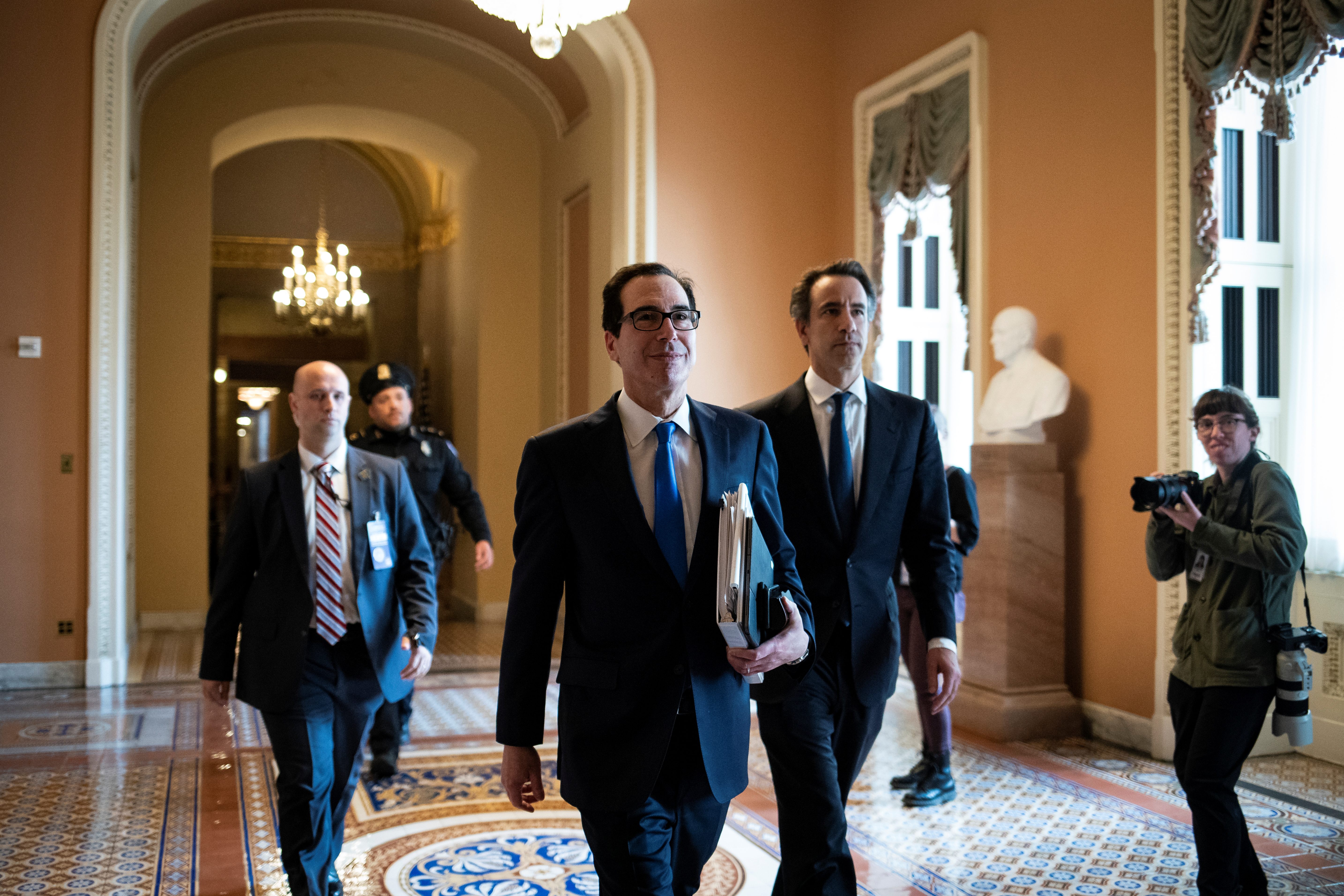WASHINGTON (Reuters) - The U.S. Senate on Tuesday was negotiating a nearly $2 trillion emergency bill that aims to counter some of the economic toll of the coronavirus pandemic.
The talks were still in flux after Democrats pushed back against initial Republican drafts of the bill, and officials in both parties said final numbers would be known only after disputes are resolved.
Below are some details under negotiation, which would need to be passed by the Republican-controlled Senate and the Democratic-controlled House of Representatives before going to President Donald Trump for his signature:
- About $500 billion in direct payments to people, in two waves of checks of up to $1,200 for an individual earning up to $75,000 a year. Additional payments for families with children could push the total to $3,000 for a family of four, according to Treasury Secretary Steven Mnuchin, who has played a key role in the negotiations.
- Up to $500 billion in "liquidity assistance" for distressed industries. The amount allocates up to $61 billion for passenger and cargo airlines and contractors, including $32 billion in grants and $29 billion in loans, people briefed on the matter said.
A senior administration official said there was agreement the $500 billion fund should have an inspector general as well as an oversight board, with lawmakers selecting members of the board.
Also, the Treasury secretary would have to provide testimony to the board on transactions, and there would be restrictions on things like stock buybacks and chief executive pay at companies that received help.
- Some $350 billion in loans to small businesses, according to Republican Senator Marco Rubio, chairman of the Senate Small Business Committee.
- Up to $130 billion for hospitals. Republicans said on Monday they have agreed to $75 billion. Hospitals sought $100 billion, and Senate Democratic leader Chuck Schumer said on a conference call Tuesday he believed Democrats had secured $130 billion, according to a person familiar with the call.
- Some $250 billion for expanding unemployment insurance. Republicans say they agreed to that in response to Democratic demands.
- Over $10 billion for drug development, and $4 billion for masks, gloves, gowns and ventilators, Republican Senator Steve Daines said.
- Schumer expressed confidence that Democrats had secured $150 billion for state and local governments, the person familiar with the call said.
- The White House has proposed $45.8 billion for federal agencies; both Democrats and Republicans want more.
- House Speaker Nancy Pelosi, a Democrat, unveiled her own lengthy, $2.5 trillion proposal on Monday. It included billions to help states conduct elections by mail.
Pelosi's bill also would make coronavirus treatment free for patients, and raise the direct cash payments to individuals to $1,500 each instead of $1,200 as in the Senate plan.
Pelosi's proposal has $500 billion in grants and loans for small businesses, $200 billion for state governments, $15 billion for local governments, $150 billion for hospitals, and $60 billion for schools and universities, a Democratic summary said. It has $61 billion in grants and loans for airlines, but requires air carriers receiving aid to cut their carbon emissions in half by 2050, the summary said.
